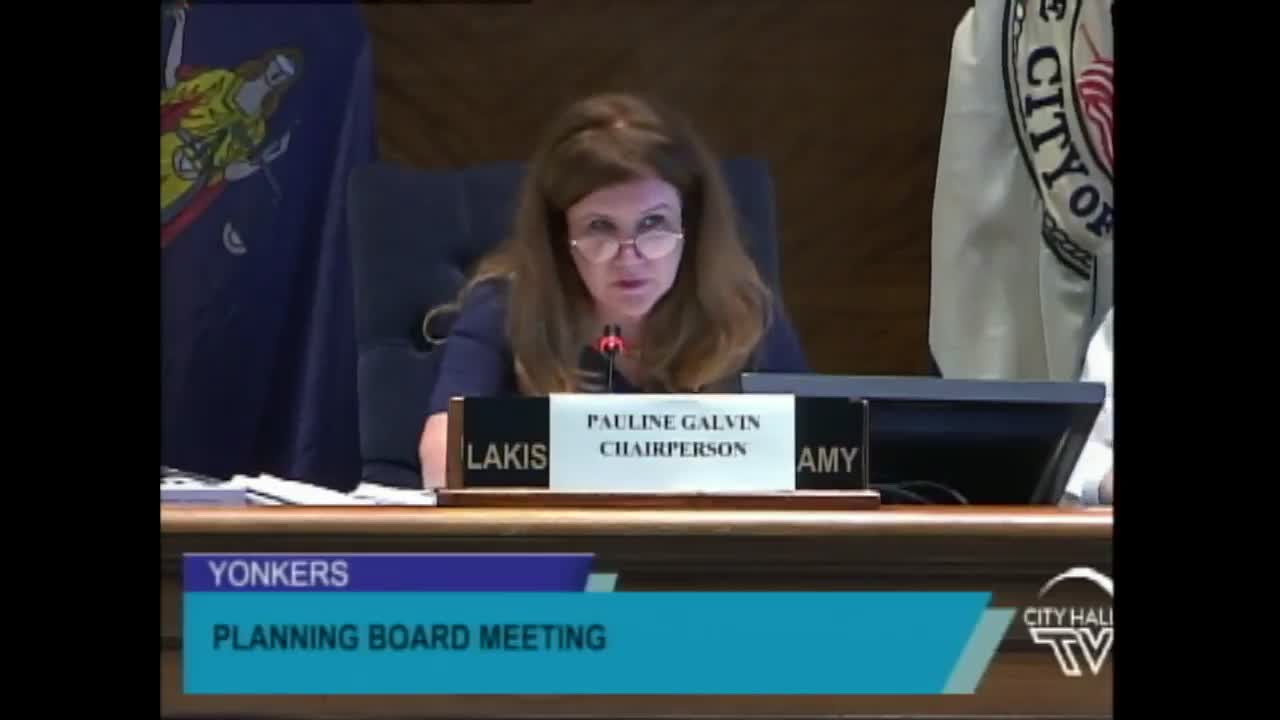Board presses Islamic Community Center on parking and occupancy at 2 Grandview; asks for written responses
Get AI-powered insights, summaries, and transcripts
Subscribe
Summary
The Planning Board on July 9 pressed the Islamic Community Center of Mid Westchester for written clarifications on parking, occupancy and off‑site parking agreements after the applicant presented a plan for 29 off‑street spaces at 2 Grandview.
The Planning Board took up an amended site‑plan application from the Islamic Community Center of Mid Westchester (ICCMW) for 2 Grandview on July 9 and pressed the applicant for written answers to outstanding questions about parking, occupancy limits and how the center will coordinate use of nearby parking lots.
What the applicant sought: Counsel and project team described a proposal for 29 off‑street parking spaces at the 2 Grandview site (27 surface, two in an on‑site garage) to serve institutional uses. The applicant said the City Building Department reviewed the plan and determined that 26 spaces would be required; the proposed 29 spaces exceed that minimum. The team also explained that the center currently holds larger prayer sessions off‑site at St. John’s Episcopal Church under an agreement and that the ICCMW’s plan is intended to move those large sessions onto the 2 Grandview site when the new parking is available.
Board concerns and discussion: Multiple board members raised unresolved issues: whether the on‑site parking will accommodate peak attendance for the center’s largest services; how overflow parking will be managed; whether and how prior off‑site arrangements with St. John’s would be replaced; whether on‑street parking near the site can or should be relied on for overflow; and how outdoor uses (occasional picnics or youth activities in the front yard) might affect neighbors. Several members urged the applicant to supply a clear plan documenting how worship services will be capped, how parking will be enforced and how pedestrian and vehicular safety will be maintained.
Applicant response and next steps: Attorney Maximilian Mahalik told the board that the building and fire departments reviewed plans and that a 104‑person occupancy limit had been identified for the 2 Grandview interior, which he said corresponds to 29 required parking spaces. Mahalik said the project team will provide written responses and clarify whether the center’s large sessions would move off St. John’s and onto the 2 Grandview lot; he also confirmed the applicant’s willingness to accept conditions enforcing occupancy limits and parking management. The board asked for those clarifications in writing and held the matter for the next meeting; no vote was taken.
Why this matters: The case highlights common planning tensions when institutional uses expand in dense neighborhoods — balancing the right to assemble and worship with nearby residential parking, pedestrian safety and neighborhood character. Board members emphasized that conditional approvals and monitoring mechanisms are possible tools to protect neighbors while allowing institutional uses to operate.
Speakers and next meeting: The applicant team was represented by attorney Maximilian Mahalik (Cody & Feder) and architect Mark Fritz. Board members who spoke at length included Mackenzie Forsberg, Adelia Landy and Claudia Espinosa. The Planning Bureau asked the applicant to submit written answers to the board’s parking, occupancy and outdoor‑use questions before the next planning meeting.
